Sleep And Dreams: 10 Mind-Bending Facts You Ought To Know
The Beauty of Sleep

Everybody loves to indulge in a good and sound sleep at night. It becomes our sweet escape from the hectic lifestyle that we all have – a silent sanctuary. It feels extremely good that after a long day at work, school or even just staying at home, we can finally be at peace within the four corners of our room and the comfort of our beds. After we have fallen into a deep sleep, we become one with our soul and we forget about things; what remains is the presence of harmony of fading away into the darkness or the realm of dreams.
Life is but a dream – a famous line from a nursery rhyme that bursts with meanings. When we say dreams, we often think of fancy and vivid images, ideas or sensations that flash inside our mind during sleep. Through time, various theories arose as to explain the occurrence of dreams when one is asleep. For an instance, Plato and Aristotle developed a hypothesis which believes that dreaming is a way to act out unconscious desires in a safe or “unreal” setting. On the other hand, Sigmund Freud’s work called The Interpretation Of Dreams is the widely accredited among all. Sleep and dreams are interrelated to one another, though no one exactly knows why dreams occur. Here are ten mind-bending facts you can ponder on.
1. Clinomania – Sleep Obsession
Clinomania is one of the strangest disorders or mania wherein a person has an extreme obsession in sleeping. A person with this disorder has an excessive desire to stay in bed and could persist for days on end. It is also known as Dysania, and due to their obsession over sleep, clinomaniacs are said to have more dreams than normal people do. Symptoms of this obsession includes: you just want to be in your bed after a long day; whenever you see your bed, you can feel its warmth and seems you were longing for it; and your feelings explode with joy and happiness every time you are in your bed.
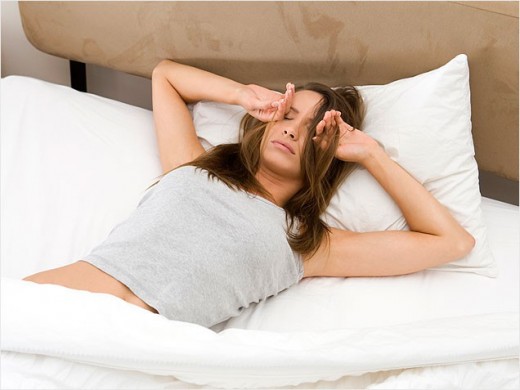
2. REM Sleep & Dreaming
According to research, we normally spend two hours each night dreaming. Dreams almost occur during REM (Rapid Eye Movement) Sleep, which typically begins with signals from an area at the base of the brain called the pons. These so called signals then travel to the thalamus – a brain region which relays the signals to the cerebral cortex, which is responsible for learning, thinking, and organizing information. Research says, that when the signal is being interrupted, this is when we begin to act out our dreams. REM sleep occurs much more in infants than in adults. REM sleep, or dream sleep, is essential to our minds for processing and consolidating emotions, memories and stress.

3. Strange but True: Less Sleep Means More Dreams
A neurologist from the University of Minnesota and director of the Minnesota Regional Sleep Disorders Center in Minneapolis, named Mark Mohawald said that, “When someone is sleep deprived we see greater sleep intensity, meaning greater brain activity during sleep; dreaming is definitely increased and likely more vivid”. This statement depicts that when someone undergoes sleep deprivation, he or she is more likely to have dreams. In connection to this, sleep is divided into REM and four stages of non-REM wherein only after seventy minutes of non-REM sleep do we experience our first period of REM, and it lasts only five minutes.
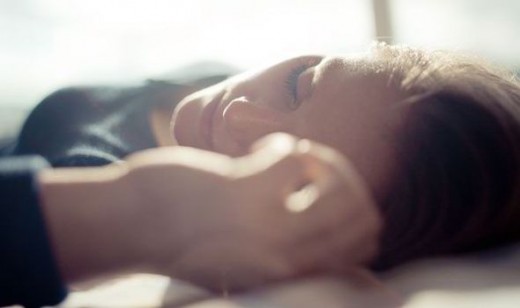
4. Marijuana Affects Sleep and Dreams
When we hear of Marijuana, we normally think about it as an illegal drug that people often abuse. However, it has been scientifically proven to have significant medical effects. Recent studies show that medical marijuana contains therapeutic value which stems from its ability to induce deep sleep, but only during the initial period of usage. According to several researches, marijuana can improve the quality of sleep but should only be taken in limited amounts. Aside from that, marijuana has been found to both induce sleep and increase the duration of sleep as well as improve the overall quality of sleep.
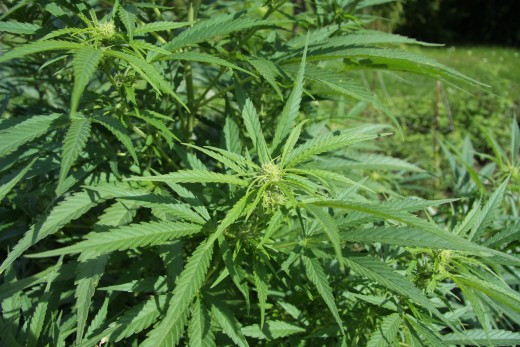
5. What Dreams Say About Your Sleep
Most people experience dreams, but only five percent it remains remembered while ninety five percent is forgotten. It is not a bad thing if we forget our dreams, in fact, we forget our dreams soon after waking up. This characteristic is attributed to the neurochemical conditions in the brain that occur during REM sleep and dreaming. The study published by the American Journal of Psychiatry strongly believes in the theory that lack of norepinephrine – hormone that enhances memory in humans. Furthermore, Freud’s theory of repression states that when we don’t remember certain aspects of a dream, it’s our brain’s way of blocking out wishes or longings that we’re not emotionally equipped to handle. Also, there are some researches that suggest that we remember more dreams when we sleep longer, simply because there’s more time to dream.

6. Stages of Sleep
People sleep in order to rest, meditate or relax after a long and tiring day. But how much do we know about it? Actually, a lot of things happen when we sleep. In fact, it has two main types, namely: Non-Rapid Eye Movement (NREM) Sleep (also known as quiet sleep and Rapid Eye Movement (REM) Sleep (also known as active sleep or paradoxical sleep. Not only that, sleep also has four different stages: Stage one: the beginning of the sleep cycle, and is a relatively light stage of sleep; Stage two: sleep that only lasts for twenty minutes; Stage three: extremely slow brain waves called delta waves are interspersed with smaller, faster waves; Stage four: referred to as Delta Sleep because of the delta waves that occur during this time.
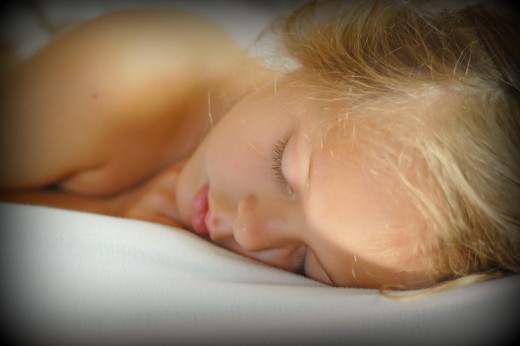
7. Eating Habits Can Impact Sleep and Dreams
A person’s diet can initiate disturbing dreams – this is what recent studies show. In addition, nutrients play an underlying role in short and long sleep duration and that people who report eating a large variety of foods. Canadian psychologists Tore Nielsen and Russell Powell, conducted a research which suggests that people's eating habits can have disruptive effects on their patterns of sleep and dreaming. Heavy meals, spicy food and anything likely to create indigestion should be avoided in order to have a good quality of sleep. It is highly recommended as well to avoid eating two to three hours before sleeping. Experts say that eating right before sleeping increases metabolism and increase the brain's overnight activity, leading to dreams and nightmares.

8. Dreams and Nightmares
When we fall asleep, we don’t always dream – that’s a fact. Sometimes, nightmares occur in our sleep and causes disturbance in our sleep. Dreams are meaningful while nightmares are dreams with vivid and distressing content. It is not only the children that experiences nightmares but as well as fifty percent of the adult population. When nightmares get extreme, it is already called as Sleep terror. Factors that trigger this to happen are numerous but the most common are: medications, withdrawal from alcohol and other drugs/medications, sleep deprivation and sleep disorders such as apnea. In most instances after you wake up, you will be able to clearly remember the details of your nightmare.
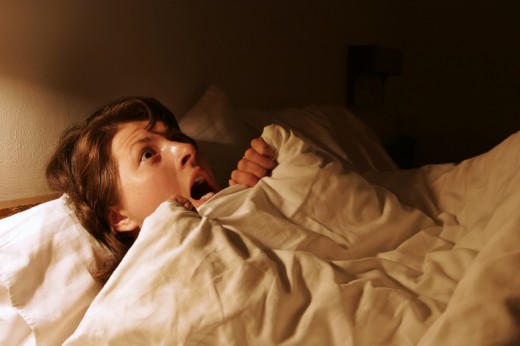
9. Best Sleeping Habits
Everybody wants to have a good and sound sleep, I mean, who wouldn’t? Humans actually spend one third of their lives sleeping. The unusual part of sleeping is dreams – which have intrigued most of us for centuries. Dreams are actually important in our lives even we don’t recognize it most of the time and we can’t even control it. As what we’ve mention in fact #3, less sleep means more dreams. In connection to that, it is highly recommended by experts that having a good sleeping habit can help in managing the occurrence of dreams. Best sleeping habits include: avoiding alcohol and caffeine intake before bedtime; regular exercise; keep a regular sleep schedule; wake up at the same time every day and eat a healthy diet.
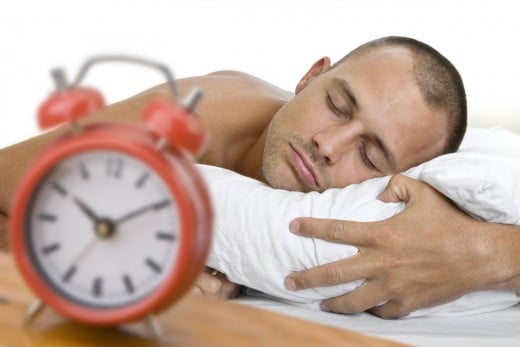
10. Sleeping Positions and Dreams
According to research, sleeping positions have different meanings and effect in sleeping as well as your health and dreams. It can even say something about you and your personality. In fact, may studies have been developed in order to determine the direct link between a person’s personality and sleeping patterns. There are various sleeping positions: fetal, yearner, log, soldier, freefall, starfish, soldier-starfish, pillow-hugger and snorer. As an example based on a study published by the American Psychological Association, entitled Dreaming in 2012, if you sleep on your stomach, you may be having sex dreams more often than people who sleep on their back or side.
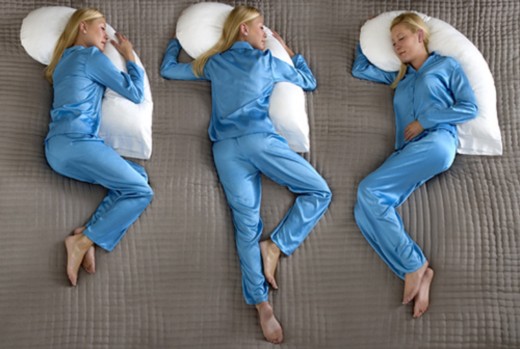
Additional Tips:
Having a good sleeping habit, healthy diet, exercise and medication are not the only effective ways for a person to have a good and sound sleep. Recent study shows that bedroom comfort can affect the quality of sleep. Based on the survey that was conducted by the National Sleep Foundation (NSF), people sleep much better when their bedrooms are comfortable and clean. The most relevant factor that showed up among their findings is that, nine out of 10 rated having a comfortable mattress and comfortable pillows as important for getting a good night’s sleep, while slightly less rated comfortable sheets and bedding as important.

Theories about Dreams
For centuries, people are intrigued to know more about sleep and dreams. We are eager to find answers about why and how we dream. In pursuit for answers, various researches, studies and theories were formed. There are even different interpretations of dreams. However, the most acknowledged theory was that of Sigmund Freud in his work entitled: The Interpretation of Dreams where he stated that dreams are wish-fulfillments. His ideas of dreams can reveal wishes or emotions you didn't realize you had. He also mentioned that dreams were a representation of unconscious desires, thoughts and motivations.

Through time, a number of theories were even formed that states different explanations about dreams such as: An accidental side-effect of random neural impulses by J. Allan Hobson; Encoding short-term memories into long-term storage by Jie Zhang; and Threat simulation by Antti Revonusuo are just few of the many. Though, as of today, still ongoing researches are being conducted to further explore the wonders of sleep and dreams, who knows? Maybe one day we’ll be even more surprised of what’s about to come.







